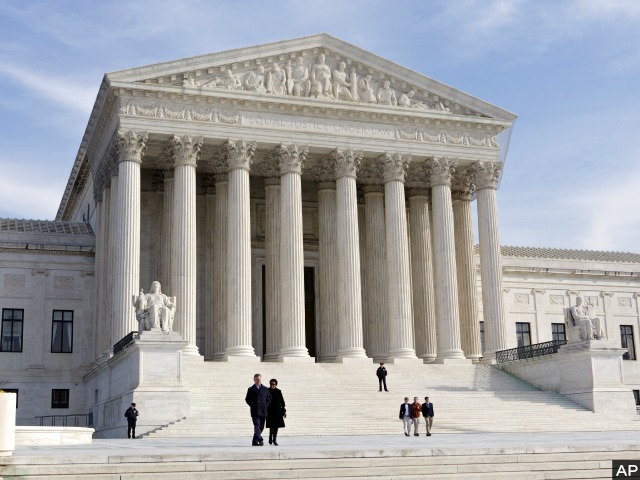
On Monday, religious and traditionally-minded Americans celebrated as the Supreme Court of the United States ruled that public town halls could open their meetings with prayers. Justice Anthony Kennedy, writing for the Court, found:
The town of Greece does not violate the First Amendment by opening its meetings with prayer that comports with our tradition and does not coerce participation by nonadherents.
Justices Thomas and Scalia went further, writing, “there is no support for the proposition that the framers of the Fourteenth Amendment embraced wholly modern notions that the Establishment Clause is violated whenever the ‘reasonable observer’ feels ‘subtle pressure.'” In other words, America is a place where you do not have the right not to be offended.
The 5-4 decision, however, left the Court’s left apoplectic, according to Justice Kagan along with her three colleagues, because “Greece’s Board did nothing to recognize religious diversity.” Kagan, of course, is careful to note that she is not endorsing a “bright separationist line” that would outlaw all public prayer. But she then writes that in any situation in which a person feels softly pressured by a public prayer, the Constitution forbids such prayer:
She then must make known her dissent from the common religious view, and place herself apart from other citizens, as well as from the officials responsible for the invocations…That public proceeding becomes (whether intentionally or not) an instrument for dividing her from adherents to the community’s majority religion, and for altering the very nature of her relationship with her government. That is not the country we are, because that is not what our Constitution permits.
Taking atheists into account here, this rule would obviously use the Constitution to strike down any form of prayer whatsoever. Kagan hangs her hat on the idea that non-sectarian worship is permissible – but she never explains just why it would be, given the existence of those who believe in no religion whatsoever.
The danger to American society here is palpable. We are one vote away from an end to public prayer.
The greatest bulwark against an overreaching government, as tyrants know, is a religious population. That is because religious people form communities of interest adverse to government control of their lives; religious communities rely on their families and each other rather than an overarching government utilizing force. The greatest obstacle to the welfare state is not greed but private charity that makes the welfare state irrelevant; the greatest obstacle to re-education of children in the name of the collective is allegiance to a higher power. More than that, the greatest obstacle to the state as god is an actual God above the state.
This is not to suggest that religious dictatorships do not or have not existed. That would be utter foolishness. No one is endorsing a return to the religious monarchies of pre-Enlightenment Europe. But today, the incipient tyrannies of the West come not from religious Americans, but from those like Elena Kagan. The separation of church and state was meant to protect church from state; a state that declares religion off limits in public life is a state that declares itself supreme over all religious values. Establishment of religion is dangerous because it threatens diversity of thought; so too does establishment of secularism. It is no wonder that advocates of Obamacare blindly push forward with their agenda to force religious Americans to violate their own precepts: in the war between the state and the individual, religion is on the side of the individual and his or her relationship with God.
That is why symbolic prayer matters. It is symbolic. It symbolizes that even government falls under the purview of a higher value – a set of Judeo-Christian values that, even in their very name, recognize a non-sectarian, Biblically-based America. Without that constant reminder, governments of rights become governments of masters. As John Adams put it, “Our Constitution was made for a moral and religious people. It is wholly inadequate to the government of any other.”
Ben Shapiro is Senior Editor-At-Large of Breitbart News and author of the New York Times bestseller “Bullies: How the Left’s Culture of Fear and Intimidation Silences America” (Threshold Editions, January 8, 2013). He is also Editor-in-Chief of TruthRevolt.org. Follow Ben Shapiro on Twitter @benshapiro.

COMMENTS
Please let us know if you're having issues with commenting.